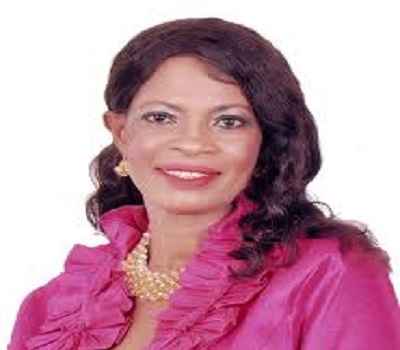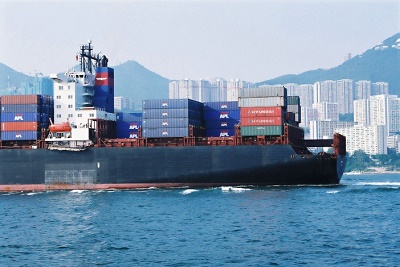SHIPPERS GUIDE
How ECOWAS Common External Tariff Can Drive Industrialization.

In this excerpt, Ifeoma Oguamanam examines the role of the ECOWAS Common External Tariff (CET), in the industrialization of the Nigerian Economy.
The Economic Community of West African States (ECOWAS) Common External Tariff (CET), adopted by 15 countries of West Africa, in January 2015, is a set of uniform tariff rates that now serve the Customs Union among member nations on import and export of products.
The myriad of circumstances which formed the base for the establishment of an ECOWAS CET, is the achievement of the major objective, which is to create a large unified market of over 500 million people to drive industrialization of member nations. It is believed that when this is achieved, tariff policy would be more rational and stable because the power to make trade policies would be transferred from each National Government to the appropriate ECOWAS regional body.
Tariff policy making would become largely free of national level political pressures of the kind which has made it virtually impossible to create and maintain the good characteristics of tariff policy in Nigeria.
Hinged on this fact, the adoption of the CET may be a real blessing since by placing trade policy making power outside the direct influence of particular persons and interest groups in Nigeria, the CET may help to build greater certainty and stability into the industrialization process which till now have remained evasive in not Nigeria alone but the region.
At the official launch of the CET, recently in Lagos, the Assistant Controller General, Nigeria Customs Service (NCS),Zone A, victor Gbemudu said “Every member country is entitled to 3percent adjustment in the CET, this 3percent adjustment enables them to be able to protect whatever industries they want to protect, like in Nigeria for instance, we have the Sugar Policy, National Automotive Policy, Solid Minerals Policy and the Agricultural Policy and to protect our industry, we now have the Import Adjustment Tax (IAT).
“The CET is going to span a 5year period, that is, by 2020 CET would have been fully harmonized and to get through this transition period there is need for someone flexibility, which IAT provides. While the CET is uniform regardless of which of the member states your cargo is coming from, the IAT differs from country to country, depending on the product, if for instance, you are importing through Cotonou ports and you are not charged IAT, when your goods gets to Nigeria, you will be required to pay it and if you are charged less, you will have to pay the difference.” He explained.
At the same forum, the representative of the ECOWAS Commission, Mr. Felix Kwakye, explained “the West African region is very diverse and it is reflected in the industrial base of all member countries, therefore, a harmonized tariff plan for the 15 member countries is no easy task, it is going to have economic effects on some, and that is why our leaders in their wisdom felt that we need to have a transition period, this means, a certain level of flexibility for all the members to gradually adjust to the CET, to liquidate whatever impact the CET will cause.
“The IAT, Which is just 3 percent of the tariff plan, is to help member nations achieve full economic adjustment over a five year period, so that by 2020, as initiated, all member countries would have made the prerequisite adjustment target required to converge at the common tariff regime. A lot of projects have suffered due to non-compliance but this particular project has received unequivocal commitment from the 15 leaders of these countries and they have requested that the ECOWAS Commission should send a half yearly report to ECOWAS countries, prepared on the application of the CET.
“The last report was presented last month and all 15 member countries were there. In August, all members will come together to look at exactly how the CET is being implemented and report back to the Commission, so that the Commission can present first-hand information on the application of the CET in all areas of the region. This will be forwarded to the ECOWAS authority of member nations.” He said.
The representative of Nigerian Customs Service, Assistant Controller Ayalogu Anthony further explained “CET is a feature of Customs Union, based on 2012 nomenclature, before the CET Nigeria was using 2007 version of the Harmonization Commodity Description Coding system (HCDS), popularly known as HS code. ECOWAS countries came together to agree on a 10 digit nomenclature that no part of the region can change. Known as tariffs. These tariffs are grouped into five bands as follows: For essential social commodities 0percent , for commodities of raw materials and capital goods 5percent, intermediate products 10percent, consumer goods (finished goods) 20percent and specific goods for economic development 35percent.
“The CET is formulated with the prevailing 2012 version of the HS code. This code was reviewed every five years, reasons for the review includes; Environment and social interests, technological progress, trade patterns and trade volume. Now Nigeria is adopting the CET and the new version of HS Code and it is no longer National but regional.” Anthony said.
In view of the prevailing arguments, one issue remains outstanding, the CET provides for most of the items on the Import Prohibition List of the Nigeria Customs Service, example is the ban on imported textile materials which has been used to protect domestic manufacturers of the product.
In Kano State, recently, warehouses containing large volume of seized textile materials is expected to generate a whooping sum of 10 billion naira to increase government revenue, which the new government laments has been depleted.
The common people believe that this IAT, which is actually levies on the imported version of products of protected industry, might have a boomerang effect of pushing prices of these goods too high in the market.





